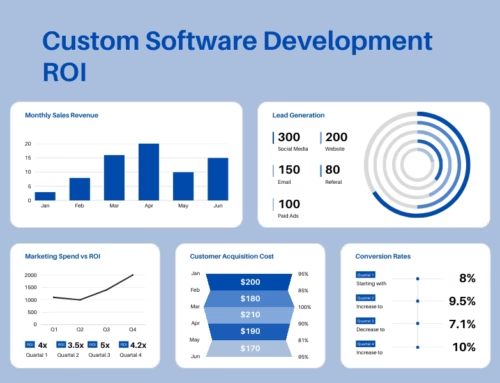In today’s digital age, having the right software is crucial for business success. Off-the-shelf solutions can address basic needs, but for companies with unique requirements or complex workflows, custom software development offers a powerful advantage. However, navigating the landscape of custom software development companies can be daunting. Here’s a comprehensive guide to help you choose the perfect partner for your project.
Expertise and Experience:
- Industry Knowledge: Look for a company with experience in your specific industry. Understanding your industry’s nuances and challenges allows them to develop software that seamlessly integrates with your existing processes and addresses your unique pain points.
- Technology Stack: Assess their expertise in the programming languages and technologies relevant to your project needs. Whether you require expertise in Java, Python, or a specific cloud platform, ensure their skillset aligns with your vision.
- Project Portfolio: Review their past projects to understand the scope and complexity of their work. Look for case studies that showcase their ability to deliver successful solutions in your industry or with similar functionalities.
Development Process and Methodology:
- Development Methodology: Agile development methodologies like Scrum or Kanban are popular for custom software projects. These iterative approaches promote flexibility, allowing for continuous feedback and adaptation throughout the development cycle.
- Communication and Collaboration: Clear and consistent communication is essential. Evaluate their communication style, preferred channels, and their commitment to keeping you informed at every stage of the project.
- Project Management: Look for a company with well-defined project management processes. This ensures timely delivery, adherence to budget, and effective risk mitigation strategies.
Team Composition and Culture:
- Team Structure: Understand the team that will be working on your project. Does it consist of experienced developers, UI/UX designers, and project managers? A well-rounded team ensures all aspects of the development process are covered.
- Company Culture: A company culture that values innovation, collaboration, and open communication fosters a better working relationship and a higher quality product.
- Location and Time Zone: Consider the time zone difference if the company is located offshore. Effective communication can be hindered by significant time zone gaps.
Cost and Value Proposition:
- Pricing Structure: Different companies offer different pricing models (fixed cost, hourly rate, etc.). Get transparent quotes outlining the scope of work, estimated timelines, and any potential additional costs.
- Value Beyond Development: Inquire about their post-development support options. Do they offer ongoing maintenance, bug fixes, and future enhancements?
- Return on Investment (ROI): While the initial cost might be higher than off-the-shelf solutions, custom software development offers long-term benefits through increased efficiency, automation, and a competitive edge.
Choosing the Right Partner:
Shortlist a few companies based on the above criteria. Schedule initial consultations to discuss your project in detail.
- Ask pointed questions: Gauge their understanding of your needs, proposed solutions, and development plan.
- Request references: Contact past clients to get firsthand insights into their experience with the company.
- Consider soft factors: Beyond technical expertise, look for a company you feel comfortable working with. Their responsiveness, communication style, and collaborative spirit are important for a successful long-term partnership.
By following these steps, you can confidently choose a custom software development company that will transform your business through innovative and efficient software solutions.



